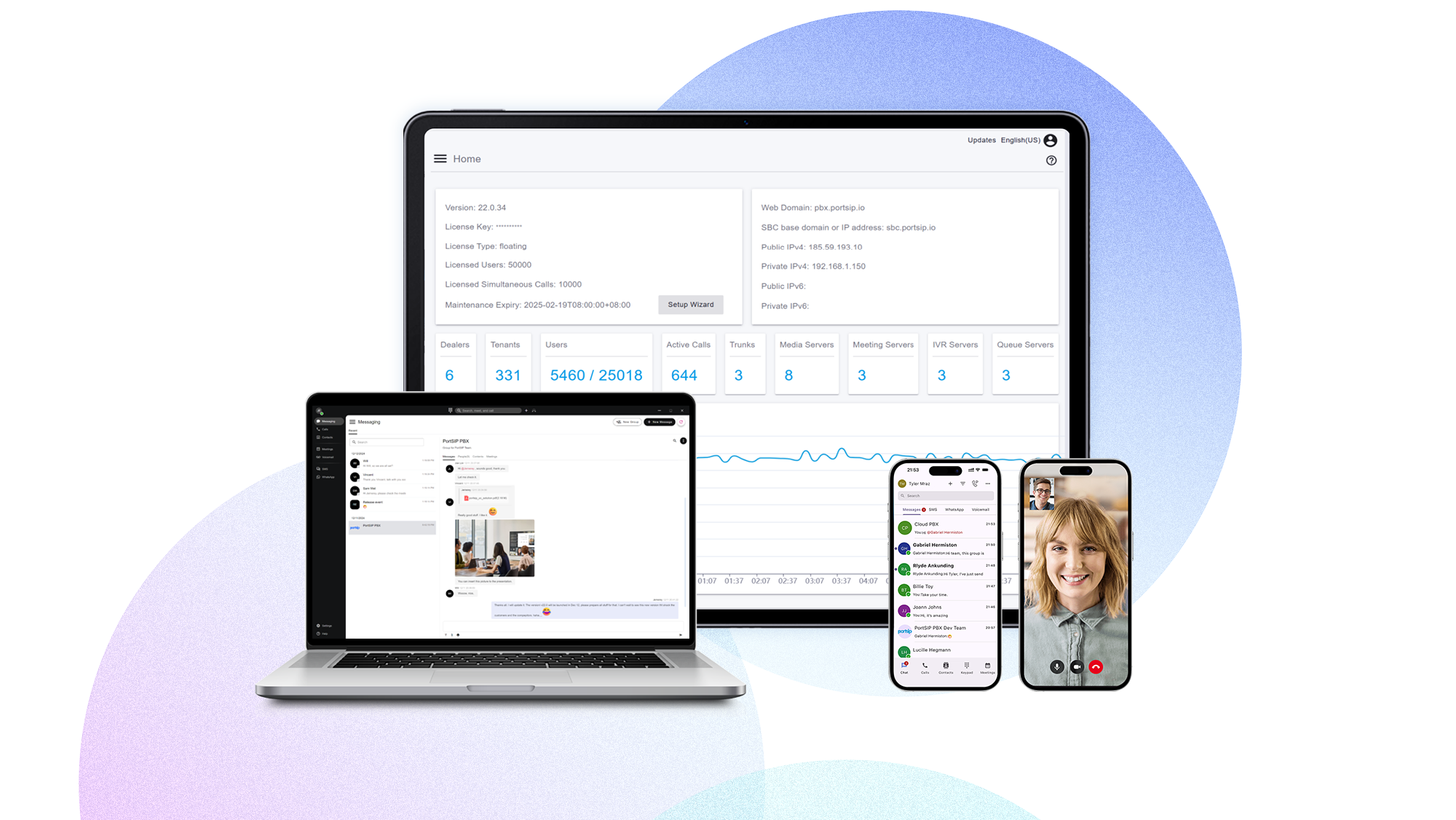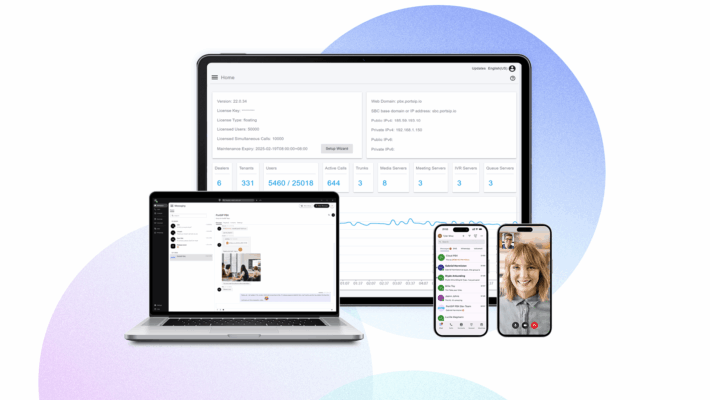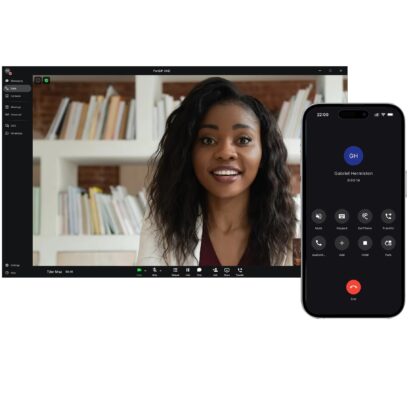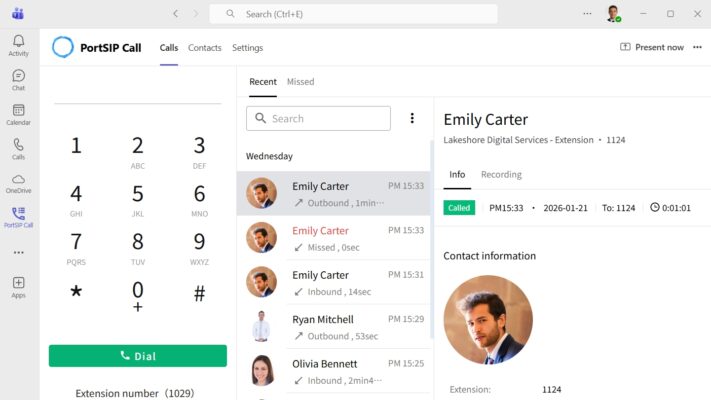Understanding CPaaS: What It Is and What It Requires
Communications Platform as a Service (CPaaS) is a cloud-based solution that empowers developers and service providers to integrate real-time communications—voice, video, messaging, and presence—directly into applications, workflows, and business platforms, without building infrastructure from scratch.
To operate a successful CPaaS platform, the following are mandatory:
- Multi-Tenant Architecture – Enables efficient resource sharing while isolating each customer environment securely.
- High Performance & Scalability – Supports high concurrency and growth without compromising reliability.
- High Availability (HA) – Ensures service continuity even in the event of node failures.
- Comprehensive App SDKs – For building communication apps across platforms like iOS, Android, Windows, macOS, and WebRTC.
- Event-Driven Pub/Sub and Webhooks – Real-time notifications and third-party integrations.
- Open REST APIs – Seamless automation and control over all CPaaS components.
The Market Landscape: Dominated by CPaaS Giants
Companies like RingCentral, Cisco Webex Calling, Vonage, Twilio, Nextiva, and Dialpad have established themselves as leaders in the CPaaS space. Their platforms are cloud-native, scalable, and developer-friendly—providing communication capabilities via subscription-based models.
However, these platforms only offer CPaaS as a subscription. For service providers who want to run their own CPaaS business—with full control over branding, pricing, and operations—there’s a growing need for a platform that enables rapid deployment and competitive parity with these giants.
The Gap in the Market
Unfortunately, the current market lacks viable turnkey options for service providers. Most traditional PBX solutions are built on Asterisk or FreeSWITCH, which were never designed for modern, multi-tenant, cloud-native deployments. These platforms often suffer from:
- Monolithic, non-scalable architecture
- Limited or no true multi-tenancy
- Performance bottlenecks under large-scale workloads
- Lack of comprehensive SDKs or modern API support
- Weak or absent support for real-time event publishing (Pub/Sub) and webhook-based integrations
In short, these solutions are fundamentally unsuitable for building a competitive CPaaS offering.
Why PortSIP is the Best CPaaS Foundation for Service Providers
PortSIP PBX is purpose-built for the modern cloud era. It’s designed from the ground up to enable service providers to launch, scale, and operate their own CPaaS platforms—quickly and efficiently.
Here’s why PortSIP stands out:
1. Cloud-Native and Containerized
PortSIP PBX runs in Docker containers, with support for clustering and orchestration. It’s inherently scalable and supports high availability with minimal operational overhead.
2. Built for Multi-Tenancy
Unlike Asterisk- or FreeSWITCH-based systems, PortSIP PBX is built on a native multi-tenant architecture. From day one, it was designed for service providers managing thousands of tenants. It’s also developed in-house and powered by the reSIProcate SIP stack, the same SIP engine used by Cisco, Poly, Google, and other industry leaders.
3. Engineered for High Performance
PortSIP PBX is optimized for high throughput and minimal latency, capable of supporting tens of thousands of concurrent sessions without compromising call quality or stability.
4. Developer-First: SDKs, APIs, and Events
PortSIP provides:
- Full-featured App SDKs for iOS, Android, Windows, macOS, and WebRTC, these SDK are using by a lot of top100 companies around the world
- A unified interface that simplifies app development
- Open REST APIs for provisioning, call control, and automation
- Real-time Pub/Sub architecture and webhook support to enable seamless external integrations and event-driven workflows
These tools are critical for CPaaS providers who need to quickly build differentiated services and keep up with the pace of innovation.
Conclusion
While subscription-based CPaaS platforms like RingCentral, Cisco Webex Calling, Vonage, Twilio, Nextiva, and Dialpad serve their markets well, they do not offer service providers the infrastructure to build and run their own CPaaS business. And with most open-source PBX systems falling short on scalability, performance, and developer readiness, the options are limited—until now.
PortSIP PBX is the answer. It delivers everything a service provider needs to launch and operate a modern, cloud-native CPaaS platform—without the limitations of legacy architecture.
PortSIP is the smart choice for building your CPaaS business. Fast to deploy. Easy to scale. Designed for the cloud era.




